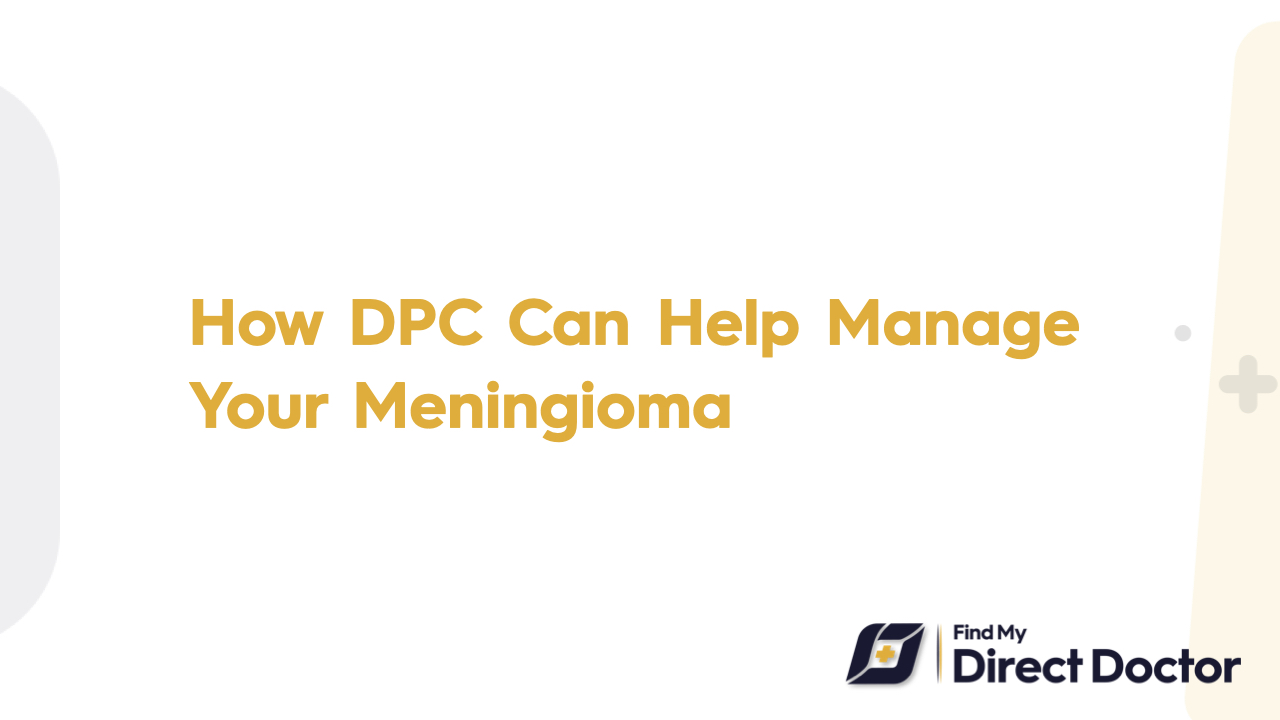



One kind of tumor that arises in the meninges, the protective coverings that envelop the brain and spinal cord, is called a meningioma. Depending on their size and location, meningiomas can still pose serious health issues even though they are usually benign, or non-cancerous. In their early stages, these tumors may not exhibit any discernible symptoms due to their slow growth. However, when they enlarge, they may exert pressure on the brain or spinal cord, resulting in a range of neurological symptoms.

Changes in vision and headaches, which are frequently chronic or get worse with time, are common signs of meningiomas. There may also be memory issues, balance or coordination issues, and seizures. Patients may experience confusion, speech abnormalities, or limb paralysis in more severe cases. Depending on where the tumor is located, the symptoms might vary significantly, thus it's critical that people see a doctor if they have any strange neurological symptoms.
A specialized and easily accessible method of addressing meningioma is provided by Direct Primary Care (DPC). Early discovery and ongoing management of meningiomas are made possible by DPC, which places a heavy emphasis on building a relationship between patients and their healthcare practitioner. DPC providers can give comprehensive, routine examinations for people with this illness in order to track symptoms and assess any changes that might point to tumor progression. In the event that a meningioma is identified, DPC providers can help with prompt referrals to neurologists or neurosurgeons, guaranteeing prompt and efficient treatment.
Furthermore, DPC makes it simple for patients to get in touch with healthcare clinicians via text, email, and phone calls, among other methods. Patients with meningioma who require frequent updates or who are worried about their symptoms would particularly benefit from this open channel of contact. Direct access to a healthcare professional guarantees that any new symptoms or concerns are swiftly handled, keeping patients informed about their condition, as meningiomas can alter over time.
For meningioma patients, DPC offers several benefits, especially in terms of accessibility and all-encompassing care. DPC gives patients more direct access to their doctor than traditional healthcare models, which can include lengthy wait times and little time spent with clinicians. For patients with meningioma, who would require continuous monitoring and care plan modifications, this is especially crucial. For people with brain or spinal tumors, having the option to swiftly and easily contact a healthcare specialist can bring a great deal of peace of mind.
Additionally, DPC's individualized care enables a more comprehensive approach to meningioma management. With greater time to learn about the patient's general health, providers in a DPC system can make sure that any underlying diseases are treated in addition to the tumor. Meningioma patients may benefit from quicker diagnosis, treatment, and continuing care if there are fewer obstacles to healthcare. The anxiety and uncertainty that frequently accompany severe medical issues are lessened by this strategy.
The core of DPC's personalized therapy of meningiomas is a proactive, individualized treatment plan made to meet each patient's particular requirements. A DPC physician collaborates closely with the patient to monitor symptoms, arrange diagnostic testing, and guarantee optimal therapy because each meningioma case is unique. A DPC provider can assist in making sure the patient receives the best care possible for their particular circumstance, whether that care takes the form of imaging tests, surgical procedures, or other treatments. The DPC model's all-inclusive care guarantees that meningioma patients receive support in managing any additional health concerns that may surface during their course of therapy, in addition to treatment for their tumor.
Patients receive the resources they require to monitor any changes in their health through regular follow-ups, allowing for any necessary modifications to treatment regimens. Meningioma patients are guaranteed the greatest results and can confidently control their illness thanks to this continuous, individualized care. A DPC system's tight patient-provider relationship fosters a sense of security since patients know that their care is ongoing, personalized, and available whenever they need it.
Previous Post